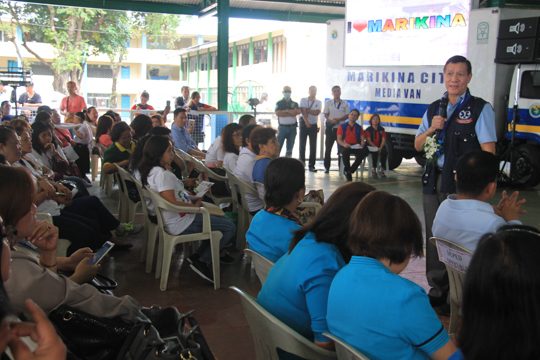SUMMARY
This is AI generated summarization, which may have errors. For context, always refer to the full article.

MANILA, Philippines – Health Secretary Francisco Duque III has officially demanded a P1.4-billion refund from Sanofi Pasteur for Dengvaxia dengue vaccine vials that the Philippine government has not yet used.
In a statement on Friday, January 12, the Department of Health (DOH) said Duque wrote two demand letters addressed to the French pharmaceutical giant’s Asia Pacific head, Thomas Triomphe.
The first is a demand for the company to refund P1.4 billion to the Philippine government, representing the cost of the unused vaccine vials in DOH warehouses.
In the second letter Duque asked Sanofi to conduct a serotesting of the estimated 873,000 children who got the risky Dengvaxia vaccine through the DOH’s now suspended dengue vaccination program. (READ: Sanofi: Dengvaxia not guaranteed to prevent dengue)
Serotesting will help determine the pre-vaccination health status of the children.
“The Dengvaxia vaccine which Sanofi Pasteur aggressively promoted and sold to the Philippine government has undeniably failed to deliver its supposed clinical benefit and safety claims, hence, considered defective under Philippine civil laws,” said Duque.
The DOH, under the previous administration, used Dengvaxia for its mass immunization program for public school students aged 9 and above in the National Capital Region, Central Luzon, and Calabarzon in April 2016. (READ: TIMELINE: Dengue immunization program for public school students)
Public health experts sounded the alarm that the mass use of Dengvaxia was done in haste, arguing clinical trials on its safety and efficacy had not been completed at the time. (READ: Mass use of dengue vaccine had no backing of DOH medical experts)
In November 2017, Sanofi released an advisory warning that its vaccine could cause a person to later develop severe dengue if he or she had not been infected by the virus prior to immunization.
Duque immediately suspended the program, but not before close to 900,000 Filipino kids got the risky vaccine.
The controversy sparked probes at the Senate and the House of Representatives.
The DOH had tapped experts from the University of the Philippines-Philippine General Hospital to assess if Dengvaxia influenced the deaths of 14 children who received Dengvaxia through the government’s vaccination program.
The Public Attorney’s Office, aided by the Volunteers Against Crime and Corruption, is also conducting a separate exhumation and forensic study of other vaccianted children who later died.
Both studies aim to determine if Sanofi’s vaccine had, in any way, caused the children’s deaths.
Duque had vowed to go after Sanofi, accusing the company of “mental dishonesty” over not immediately disclosing all information regarding Dengvaxia.
In a Senate hearing, Triomphe had told senators it would be a “disservice to the Filipino people” if Dengvaxia is completely banned in the Philippines.
The Food and Drug Administration already stopped the sale of Dengvaxia for a year after Sanofi failed to comply with post-marketing authorization requirements for the vaccine.
Sanofi was also slapped with a P100,000-fine. – Rappler.con
Add a comment
How does this make you feel?
There are no comments yet. Add your comment to start the conversation.